8 Simple Ways to Conquer Burnout
- Sparkle A Latte

- Dec 9, 2022
- 20 min read
Updated: Aug 18, 2023
How do you know you are stressed, overwhelmed, burnt out and cracking under the pressure? For me, both my family and I knew something was dreadfully wrong when I was completing the simple task of cutting 60 sets of hand shapes out of construction paper and I found myself taking on this task in a crumpled heap on the floor while I wept. As my concerned family slipped down on the floor to help me cut paper, we all knew one thing: mama needs a little help.

Not only were my emotions all over the place, but my health was deteriorating. I was gaining weight, developing new health concerns, experiencing frequent unexplained aches & pains, muscle tension, digestive problems, anxiety, depression, food sensitivities and plantar fasciitis. With all of this going on, my immune system took a hit and I found myself battling frequent sickness.
In 2014, I found myself so sick from bronchitis that my body couldn't heal. I developed asthma and ended up having to drive myself to the emergency department at our local hospital while gasping for air because I couldn't breath well. I was hospitalized for two days as they tried to just help me breath through the night.
Looking back on that situation that happened all those years ago made me really think about the reality of all that I have experienced in the past with stress, pressure and burnout in my previous job (and in other life challenges). There are so many valuable things I wish I had known then to help myself through that burnout experience more successfully.
I eventually learned all of these things as I began my self-healing journey and restored balance to my body, mind, emotions and nervous system after the burnout danger was over (I ended up leaving that job), but it made me wonder what difference it could have made to have these strategies on hand back then.
Do a Self Check-In

Today, I am going to share these actionable tips and strategies with you so that you can do a "self check-in" to help yourself either restore wellness and balance from your experience with stress, pressure and burn out or to completely avoid it altogether. You'll learn to check in with yourself regularly (in various ways), assess the situation, make adjustments and address any underlying causes that you find to be contributing to your current state of overwhelm. Let's get into it.
Check Your Perspective
The first step is to take an honest look at your current perspective by assessing your thought life and your mindset. Are you dealing with a mindset that causes you to feel like you have to put extra pressure on yourself?
Some questions to ask yourself:
Do I feel like I have to be "superhero," "perfect" or "always the best?"
Do I say this to myself (either out loud or in my thoughts), "If you want it done right, you've got to do it yourself?"
Do I feel that the job isn't done right or finished unless it is perfect?
While being a perfect superhero who wins battles alone and always gets the job done right sounds like an empowering thing for a fictional character, the problem is that it is incredibly disempowering for humans because it sets you up for stress, emotional dysregulation, loneliness, illness and the development of self-sabotage behaviors such as perfectionism, overworking, and self-neglect.
Even though you might do great work, your mind, body, spirit and soul all need time and care to recover from what we experience each day. We are often harder on ourselves than we would be on others. One way to change this is to offer yourself the same love, grace and compassion that you might offer a friend or loved one in a stressful situation.

If you find yourself having negative, disempowering mindsets, thoughts and behaviors during your self check-in, the first step is to applaud yourself and do a little happy dance because you are a giant step ahead of the others who haven't taken this first step yet. Having this self-awareness gives you an opportunity to begin to shift this mindset. One method you can use to make this shift is to create doubt. Is there any evidence that you can see that this mindset may not actually be true?
Grab a piece of paper and write down any evidence you can think of.
A few examples might look like:
I don't actually have to do it alone because others also know how to do it.
I don't actually have to be perfect, because I do my best and my best is good enough.
I don't actually have to fly solo because I actually prefer to work on a team for some types of projects.
Then, create a list of other positive mindsets that are true and more empowering. Some examples could be:
I am a fully capable of learning anything I need to learn to accomplish my dreams.
I can overcome anything because I am strong, bold and courageous.
I embrace challenges with ease and grace.
Each day I take more and more positive action toward self-healing and personal growth.
I am fully capable of taking daily action steps toward my success
If you don't resonate with any of these, you can get some great ideas by looking through a list of positive affirmations online. Trust me, there are plenty to choose from. If you still can't find anything that seems to fit, you may find enough inspiration to design your own positive mindset or affirmation that feels fully aligned and authentic to how you would prefer to think. Once you have chosen one of those mindsets/affirmations, do two things:
Create a new list of evidence (much like you created a list to create doubt from the example above). Try to list at least four pieces of "evidence" that demonstrate that your new chosen mindset is, in fact, true.
Use your new affirmation regularly and make it one that you can repeat often, add it to the reminders on your phone (so you see your affirmation several times a day), place on sticky notes and/or recite it to yourself in the mirror each day.
Check Your Timeline
So often, we have a lack or poverty mindset about how much time we actually have available to us to complete tasks (the lack mindset doesn't just apply to money). This creates fear and causes us to put undue pressure on ourselves that can create anxious and chaotic thought patterns that limit our critical thinking skills. Instead of figuring out how to move faster and beat the clock, I recommend shifting your focus away from the "I'm running out of time" or "I don't have enough hours in the day" mindset to a focus on "peace and planning is greater than speed." We'll walk through the planning part (that leads to more peace) below.
Here's how this equation looks:
peace + planning > speed

Do you have a realistic understanding of how much time you have? Sometimes we feel like we only have a few days to complete a long to do list, when in reality, we may actually have weeks or months. Even if we are on a tight deadline that requires a quick turnaround, oftentimes, it is the lack of preparation, planning and time management that creates our angst. It can be helpful to just take a deep breath and remind yourself that you have time. Sometimes this one act can be enough to usher in a bit of peace so you can ease your nervous system and get your critical thinking skills back "online" long enough for you to create a plan of action.
Of course, this isn't always the case. Sometimes you really might only have day or a few hours left to complete a task and you actually are running out of time. This is where the "peace + planning > speed" framework can be helpful so that you maximize your effort during the time you have left.
When creating your plan of action, take a moment to assess the situation through the lens of The Four D's: Drop it, Duplicate it, Delegate it, and Do it. I learned this concept from an inspiring mentor and author, Melinda Cohen, and it has made a massive impact on the way I handle my own time management.
Drop it.
If it is not contributing to your current and most pressing goals, drop it off of your schedule for now. These would be things that are time wasters and energy thieves.
Here are few examples:
Endless scrolling on social media - Set a timer and limit the number of times you check it and how much time you spend scrolling (or go "next level" and just skip it altogether, if you can).
Certain social engagements - Is it absolutely necessary for you to meet your work buddies for drinks after work this week when you are under immense pressure for a deadline? Or would they understand and gladly reschedule to the following week once the pressure is off where you could actually enjoy yourself more and be more present?
Gossip and wasting time at the water cooler - Gossip is negative energy exchange that can actually deplete your energy instead of restoring your energy. Swap the office gossip for a meaningful, supportive chat with a trusted friend after work during your down time. Save your work time for accomplishing the pressing tasks that will ease your stress once they are complete. It's the gift that keeps on giving.
Temporarily cutting these types of things things out of your schedule (except for the gossip - maybe just cut that out altogether, LOL) strengthens your intention, intensifies your focus and builds your momentum and motivation to take necessary steps forward toward the completion of your projects and goals.
Duplicate it.
Depending on the task, my recommendation is to avoid reinventing the wheel where possible. Automation, systems, workflow pre-planning, using pre-made templates (instead of recreating new spreadsheets and documents from scratch every time), and scheduled task lists (using apps or the features within your email provider) can help you pre-plan when tasks need to be completed at every stage of your goal or project.

This can also help you to have the reminder of what is coming up for you each day of the week. If it is something that needs to be done daily, weekly, monthly or even quarterly, you can set your task list reminders to repeat as necessary. In this way, you can plan it once, then set it up and let it work it's magic for you, which frees up a little time and mental bandwidth for you. Along the way, you can see what is working and what's not working and then make adjustments so that you eventually create a master plan that works for you. Then it's just a matter of rinse and repeat!
Delegate it.
There may be some tasks that absolutely must be done by you. You may not have an assistant or co-worker to pass it off to, but in some cases, you absolutely can find ways to delegate some, if not all, of your tasks. From my example I offered at the beginning of this blog, I easily could have asked several members of my family to help me cut those hand shapes out of construction paper. It was my "superwoman mindset" (ie. my pride) that kept me from realizing it was ok to ask for help.
This tip especially applies to tasks that you hate or know you aren't even that good at (and you're ok with admitting that, LOL). Is there someone else who can do this faster and better who might actually enjoy the task? For instance, do you have thousands of emails that need to be deleted or organized? Or do you have to design a flyer and you don't feel confident with the software? Do you have or know of a teenager who'd like to make an extra $10 or a friend who owes you a favor? I think you see where I'm going here.
Not everything needs to be done by you all the time (even if it is just having supper delivered so you don't have to cook and clean when you get home from a hard day of work so you can rest and recover). What can you pass off to someone else?
Do it.
Now, if you do the payroll at work and no one else is trained do it, then the delegation tip will not be applicable to you, of course. There are certain types of tasks you actually need to do yourself. However, you may find this list is actually much smaller than you once thought once you drop, duplicate and delegate a few things.
One you've narrowed down your "do it" list to what you absolutely must do, then your strategy at this point is to shift from "throw the spaghetti on the wall to see what sticks" way of accomplishing tasks to a more thoughtful and intentional strategy to optimize your efficiency (and instill more peace in the process).
However, this is not always a linear process. If you know anything about Human Design or even the Myers-Briggs personality types, you know that we do not all work, think or accomplish tasks in the same way. For this reason, it will be most optimal for you to know and accept yourself on a deeper level so that you are working within your natural flow. Working against your nature by trying to work and accomplish tasks like other people do will only deplete you of your authentic creative energy, which will slow you down and create dissatisfaction.
Radical self-acceptance was a massive game-changer for me. I learned that it is ok for me to accomplish tasks in a way that makes sense to me as an INFJ and a Manifesting Generator. I get much more done now that I have learned to give myself that grace and allowance and I stopped putting pressure on myself to be something I'm not.
The good news is that you don't have to do a deep dive on learning about these subjects (which, at this point, might only make you feel overwhelmed with just another thing to add to your to do list). Gaining even just a little bit of self-awareness through learning about yourself in this way can bring about enough of an "A-ha!" moment to shine on a light on how you can best proceed as you create an aligned plan of action that works for you.
So, here are some questions to hep you assess this (they're also useful for journal prompts):

Do you know how your mind and energy works best when accomplishing tasks? If not, how can you learn more about yourself (the "learning about yourself" and "Human Design" links above are great starting points).
Do you allow yourself to go with your own flow or are you trying to copy someone else? Have you accepted yourself and your authentic design?
Based on your unique design, what is the most efficient and optimized way to accomplish your tasks in a way that keeps you in your unique creative flow?
When designing a plan of action, what feels good to you regarding your workflow? More structure, more fluidity or a hybrid of the two?
How can you incorporate more of that into your schedule so that you accomplish what you need to do in a way that feels good to you and creates a win-win?
Check Your Plan
Taking just a few minutes at the beginning of the week to create a plan of action to accomplish your most important tasks (broken down into small, manageable chunks) creates a sense of empowerment over your schedule and helps you create more peace in your nervous system knowing that you have made a plan and established order. This helps you to see when these tasks will actually get done so you can take a deep, peaceful breath knowing it WILL get done.
Try this:
Make a list of all the big things that need to get done this week.
For each item on the list, create list of all the small micro-tasks that are involved in the completion of the overall task. For example, the task of "making a sandwich" would involve the micro-tasks of gather supplies (plate, knife, bread, meat, cheese, condiments), make the sandwich, cut the sandwich, clean up and return supplies. Silly example, I know, but it's a great way to demonstrate micro-tasks vs major tasks.
In what order do these tasks need to be completed?
Put it on the calendar. On which day will you complete each task?
Add each item to your task list (either an app or on your email provider like the Gmail task list sidebar) and assign the date and time you want to begin working on the task, add any helpful notes, and select whether this item needs to be repeated. Setting this up now means you won't have to do it again in the future unless it changes, which will save you time.
Bonus tip: Planning ahead for interruptions and setbacks creates even more peace by anticipating them and planning for them ahead of time so they don't throw you off course. To do this, simply adjust your anticipated time of completion for each task so that you add 5-10 minutes to each one. If it normally takes you five minutes to check email, add it to your reminders as a task that will take ten minutes. Then if something takes you a bit longer, it doesn't automatically put you behind in your schedule for the rest of the day. However, if it does only take five minutes, go ahead and move on the next task because you are ahead of schedule, baby!
Check Your Feelings & Emotions
Neglecting feelings and emotions is what often what leads to burn out in the first place. For many of us, it is easy to get lost in ever-growing to do list and just put more and more pressure on ourselves without becoming aware of the toll it is taking on our mental, physical, emotional wellness and relationships. Oftentimes, we aren't the only victims of burn out. Families, friendships and romantic relationships often take a hit as well because of a loss of healthy connection and communication.
It is a downward spiral that can have massive collateral damage. That being the case, checking in with your feelings and emotions and having a safe place to process them is vital to restoring peace, balance and emotional regulation.

It was my own burn out and collateral damage that caused me to learn about alternative modalities for improving my situation. That was when I discovered more about chakra healing, meditation, EFT (Emotional Freedom Technique), reiki, hypnosis, energy healing with The Emotion Code and Body Code and so much more. Since then, these modalities have become a huge part of my family's self-healing journey both collectively and individually.
Take a moment now to practice checking in with your feelings and emotions:
Take a deep breath.
Focus on your body. Do a mental scan starting with the top of your head. How does your head feel? Is there pain or tension anywhere? If so, where (and do you know why it is there)? Does your mind feel calm, centered and focused? Does it feel stressed or spacey?
Now continue your scan to other parts of your body all the way down to your feet.
Did you notice discomfort, tension, aches, stress, pressure anywhere?
Did you feel any emotions that came up during the process? Did you feel sadness, stress, fear, discouragement or anything else?
Take another deep breath (or a few).
How'd it go? Did you notice anything interesting? It's a good idea to write down what you noticed or felt during a scan so you can come back to it later either in your journal, meditation time or appointment with your coach, therapist or energy healing practitioner.
Our body speaks to us in many ways and it is important that we learn to listen when body whispers to us so that we can respond with appropriate action and care. It is when we ignore the messages of our body that it will eventually scream at us to get our attention (often in the form of illness or even injury).
Many people avoid this aspect because they have no idea how to address the things they find in a scan, but it can be easy to address any emotional energy blocks by getting established and working with a trained and Certified Emotion Code Practitioner who can help you find and release the trapped emotions that are contributing to your current state (or lack of) of wellness, positive results and relationship satisfaction (with yourself and others). Then you can replace that negative energy with positive energy and habits through the use of meditation, affirmations, The Self-Awareness Workbook, Reiki, EFT, moving meditation like Tai Chi or Qigong and many others tools like these.
"It is even more important to optimize the proper care and processing of your emotions and to make it a regular part of your mental and physical wellness plan." - Christy Edwards
Just like my tips for optimizing your time management in the steps above, it is even more important to optimize the proper care and processing of your emotions and to make it a regular part of your mental and physical wellness plan. This gives you the opportunity to release emotions that aren't even yours so you can free your body and mind from any emotional baggage you've absorbed from other people like family, friends and co-workers.
This alone provides a great deal of clarity of mind because you are no longer dealing with excess baggage that was slowing you down and "clogging the pipes" of peace, productivity and wellness. Then you can focus on healing and releasing what energy blocks are yours so you can replace them with more empowering energies moving forward. This is how I help people learn to take a more proactive role in their energetic and emotional wellness, which has a ripple effect into all other areas of life.
Check Your Position
Do you find yourself generally thinking, feeling, speaking and acting from a place of positivity or negativity? Either way is ok, for now. There is no judgement here, just radical self-honesty, because this is not an indicator of your nature, personality or character. It is simply your indication of your energetic "position."
Whenever I am teaching people about trapped emotions, I find it especially important to make the following distinction. The words "negative" and "positive" as descriptions of emotions and energies do not mean the energies and emotions are "good" and "bad". Instead, it is more helpful to think of our emotions as being on a spectrum and we can experience all of the emotions on that spectrum at any point in life based on the circumstances in which we find ourselves.
Emotions are simply a way of expressing how we are interpreting our circumstances. It is more about the vibration or frequency of the emotion. One way to think of it is when you are tuning into a radio station. If you tune into a classical station, you know you will get classical music. The same applies to country, pop or hip hop. If you are looking for a particular type of music, you must tune into a particular station. Lower vibration emotions are on a lower frequency while higher vibration emotions are on a higher frequency.

We often compare emotions with a "good vs bad" mindset and try to block, avoid or hide from the lower vibration emotions like shame, guilt and betrayal (on one side of the spectrum). The truth is that the lower vibration emotions are just as helpful and valid as higher vibration emotions like happiness, love and joy (on the opposite side of the spectrum). All emotions are teachers. They are not an indication of a person's character, moral compass or "right and wrong."
If you are in a place in life where you find yourself encountering lower vibration energies more regularly than the positive ones, then your position (or your overall vibration) is most likely on the negative side of the spectrum. What this simply means is that you will have more ease in seeing and perceiving more situations in life that will bring you more of what you are focusing on - whether you have a negative position or a positive position.
It is like when you buy a car, then all of a sudden you start seeing that type of car everywhere, whereas you may not have noticed that type of car much before. It is not that you created more of those cars by purchasing one of your own. It is that now that your new car is in your field of awareness, you are more aware of what was already there - other cars like yours.
In that way, you aren't creating more negative life experiences just because you felt a negative emotion. It just means that if you feel that type of emotion regularly, you may be in need of an energetic reboot to realign your energy to a higher vibrational position. That's the good news!
You have the power to shift your position and your energetic field of awareness so that you can positively impact what you perceive (or attract) in your life. You have options, choices and power over your own life. Taking a lead role in your life means taking radical responsibility over how you play that role and often leads to radically positive results when it becomes a part of your regular self-care routine.
Check Your Self-Care Routine
When I battled burnout, I can honestly tell you that what contributed to it was much more than just a busy schedule:
My position was negative.
I wasn't meditating regularly.
I wasn't journaling or doing any form of self-care.
My emotions were dysregulated.
I didn't have an energy management system in place.
I didn't have a support system in place (like a coach, therapist or energy healing practitioner).
I wasn't sleeping well.
I wasn't exercising regularly.
I wasn't eating well. My diet was sporadic and extreme in nature.
My romantic relationship was suffering.
My nutrition and supplements were not optimized for my needs.
My health conditions were out of control.
My energetic and emotional boundaries were non-existent.
My time management skills were underdeveloped and underutilized.
If I'm being honest, my personal burn out experience was really just an indication that I was falling apart in more than one area of my life and it was not going to be fixed with a few simple time management techniques (although, those did help greatly once I got to the root of the problem). It is for this reason that I recommend that you develop a strong support system to help you to establish a routine that will help you in a more holistic fashion.
Some options for support are your health care provider, naturopath, chiropractor, acupuncturist, reiki master, health coach, therapist, life coach, and energy healing practitioner, just to name a few. You can mix and match until you find the right combination to help support your overall mental, physical, emotional and spiritual wellness and goals. You can't just put one tire on your car and expect a smooth ride. {wink, wink}
"It can be really easy to collect stress in our bodies and minds and just sweep it under the rug claiming 'that's just life.' Then later, we wonder why we are tripping over that huge bump in the rug." - Christy Edwards
Check Your Stress Management
Let's be honest - life can be tough sometimes. It can be really easy to collect stress in our bodies and minds and just sweep it under the rug claiming "that's just life." Then later, we wonder why we are tripping over that huge bump in the rug.
Stress will eventually catch up to you, if ignored. It's better to address it as fast as possible and as regularly as you can. Having a plan in place gives you practical steps to follow in order to take radical responsibility for your own self-care when stress strikes and you need relief quickly.
The first place to look is in your past experience. Do you already have some healthy habits in place that you go to when you need to de-stress - especially ones that work well for you? Of course, I am not talking about drugs and alcohol, excessive shopping and emotional eating types of habits here. I am talking about healthy habits that make you feel peace, regulated, calm, safe or even happy. Knowing what works for you before stress hits is a powerful position to be in because you know exactly what to do to relieve it quickly before it has a chance to negatively impact your health, productivity and relationships.
Here's a few ideas that you can try whenever you need to relieve stress. I share more about these stress management tips over on my Instagram page so be sure to follow me there to read more about these tips there.
Check Your Big Why
My final tip for conquering burnout is to check in with your "Big Why" behind your values, goals and purpose. Why are you even doing what you are doing? Is there a greater purpose that is your driving force? Or are you doing something that is not in alignment with who you are and what lights you up?
It is all to easy to lose focus on why we are doing something and only focus on the task list. This deprives us of the meaning and joy that may have been a catalyst for us in the past. On the days when it is hard, that is when it is vital to remind yourself of the deeper meaning of why this is important to you.
In my coaching and energy healing practice, my brother is a huge part of my Big Why. I watched him suffer his whole life with addictions because he never had a safe place to discuss his emotional pain and he tried to stuff it down, avoid it and distract himself to find any sort of peace. That peace was always short-lived and soon he would need another hit to try to cover his pain again. We eventually lost my brother in 2020 to an overdose that took his life. He never got the self-healing he so desperately needed. He is why I want to help others find real and lasting relief from their suffering.
What is YOUR Big Why? Do you know? If you don't know or have forgotten, I highly recommend doing some work around this to get to the deeper core of what motivates you and makes you tick.
Final Thoughts
Healing from burn out is a long journey, but it is worth the commitment because it is easy to lose yourself on the journey to burnout. That is why is so important to avoid it whenever possible, but it is even more important to commit to the journey of self-healing after the burnout has happened so that you can reconnect to yourself, recover from the damage, and restore a feeling of peace & happiness as you move forward in your life.
This helps to guide you as you develop new empowering habits and mindsets that support the alignment of your values, goals and purpose. It is not so you can get back in there and accomplish more tasks even faster. It is so that you can create and live a healthy, happy and fulfilling life on your terms. Your happiness matters. Your sparkle matters. You matter.
Have you survived and recovered from burnout? I'd love to hear all about what you've done to survive and even thrive after an experience with burnout, overwhelm, and stressful times. Reach out and let me know. I'd love to learn about what has worked for you.
Before you go, don't forget to grab your free resources Making Friends with Your Emotions. Enjoy!

Christy Edwards is an Intuitive Life Coach and a Certified Emotion Code Practitioner. She is a wife, mom and snuggle buddy to her goofy pup, Royal. She loves inspiring and helping other women to release, rebalance and transform trapped emotions, negative energies & subconscious habits so they can reignite their sparkle and create lives they love living. Ready to begin your self-healing journey?
.png)











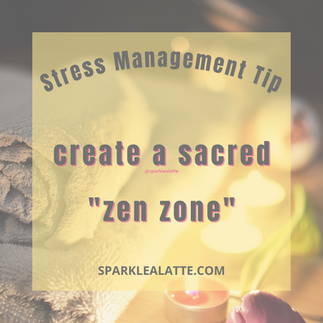

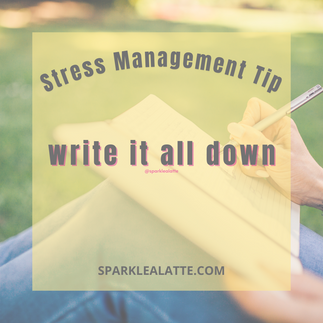

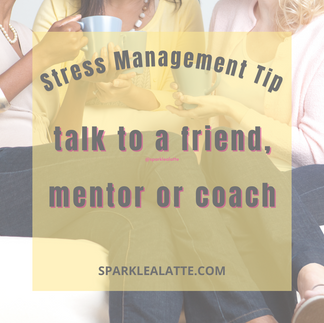





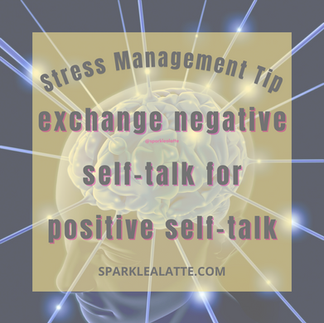

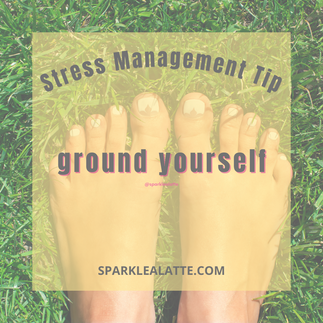





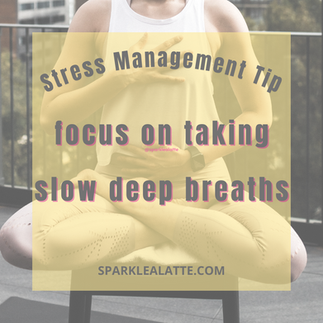



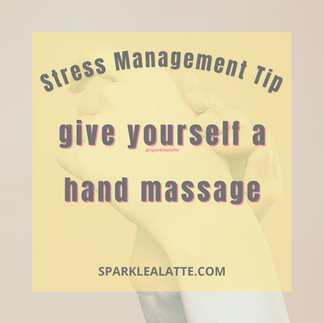









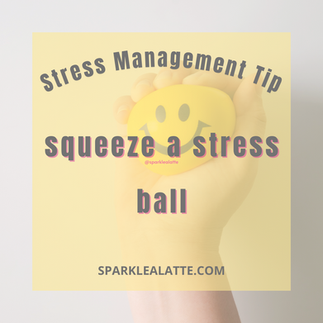



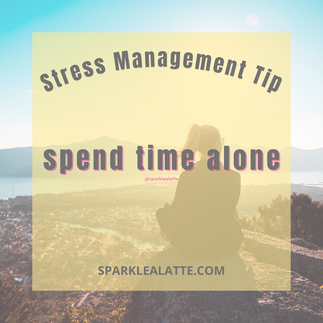



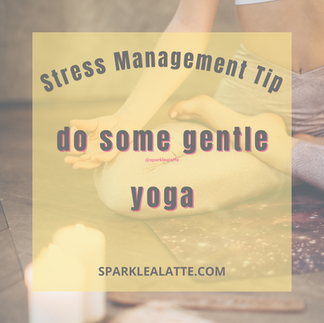





Comentarios